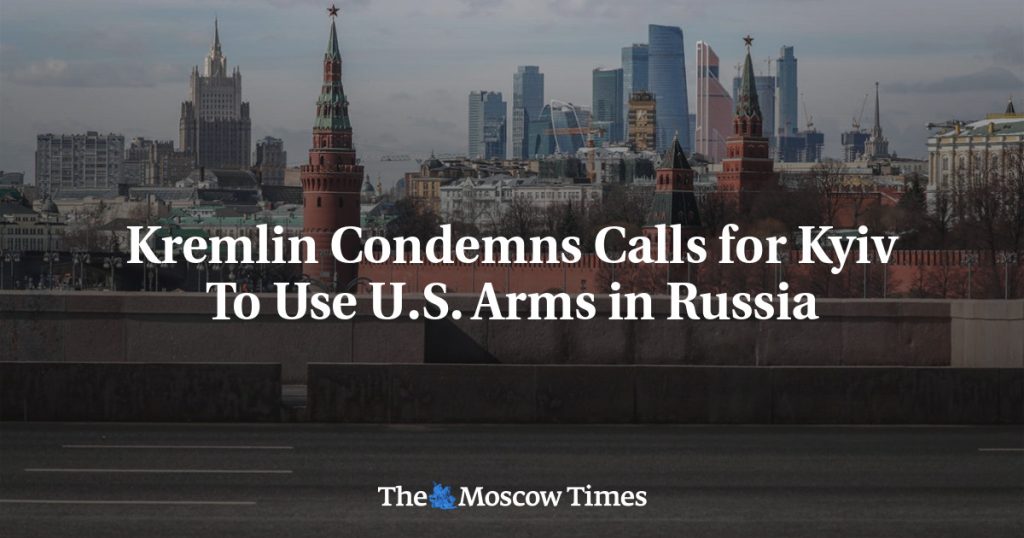Moscow criticized U.S. lawmakers, including House Speaker Mike Johnson, for suggesting that Ukraine should be allowed to use donated American weaponry to fire into Russia. Kremlin spokesman Dmitry Peskov called these lawmakers “hotheads” and characterized their position as irresponsible and dangerous. He emphasized that international weapons supplies will not change the outcome of the conflict, and Russia will continue fighting until it achieves its objectives.
Johnson, the Republican Speaker of the U.S. House of Representatives, expressed his support for allowing Ukraine to use American weapons as they see fit in the conflict. He argued against micromanaging Ukraine’s efforts and stressed the importance of letting Ukraine fight back. Ukraine has been launching strikes across the border into Russia, particularly into the Belgorod region, as a form of retaliation for attacks on its own soil.
Russian President Vladimir Putin stated that his army initiated an offensive in the northeastern Kharkiv region to create a buffer zone to protect Russian border villages from Ukrainian attacks. U.S. Secretary of State Antony Blinken, during his visit to Kyiv, mentioned that while the U.S. has not encouraged or enabled strikes outside of Ukraine, it is ultimately up to Ukraine to decide how it will conduct the war. British Foreign Secretary David Cameron also supported Ukraine’s right to strike back at Russia during his visit to the country.
The debate over allowing Ukraine to use donated American weapons to fire into Russia underscores the complexities and intensities of the conflict between the two nations. Calls from U.S. lawmakers for more aggressive actions against Russia have sparked criticism from Moscow, which sees such moves as reckless and potentially escalatory. The differing perspectives on how Ukraine should be allowed to defend itself highlight the challenges of managing international conflicts and the delicate balance between supporting allies and avoiding further escalation.
As tensions continue to rise between Russia and Ukraine, the role of international actors, including the United States and the United Kingdom, in influencing the conflict becomes increasingly significant. The statements made by U.S. lawmakers, House Speaker Mike Johnson, and government officials from other countries indicate a willingness to support Ukraine’s right to defend itself against Russian aggression. However, the potential consequences of allowing Ukraine to engage in cross-border attacks using American weapons must be carefully considered to avoid further exacerbating the conflict.
Ultimately, the decisions and actions taken by Ukraine in response to Russian aggression will have far-reaching implications for the ongoing conflict and the broader geopolitical landscape. The debates surrounding the use of American weaponry and the international support for Ukraine demonstrate the complexities of managing conflicts between powerful nations. As both Russia and Ukraine continue to engage in hostilities, the involvement of international actors adds another layer of complexity to an already volatile situation, with significant implications for regional stability and global security.


